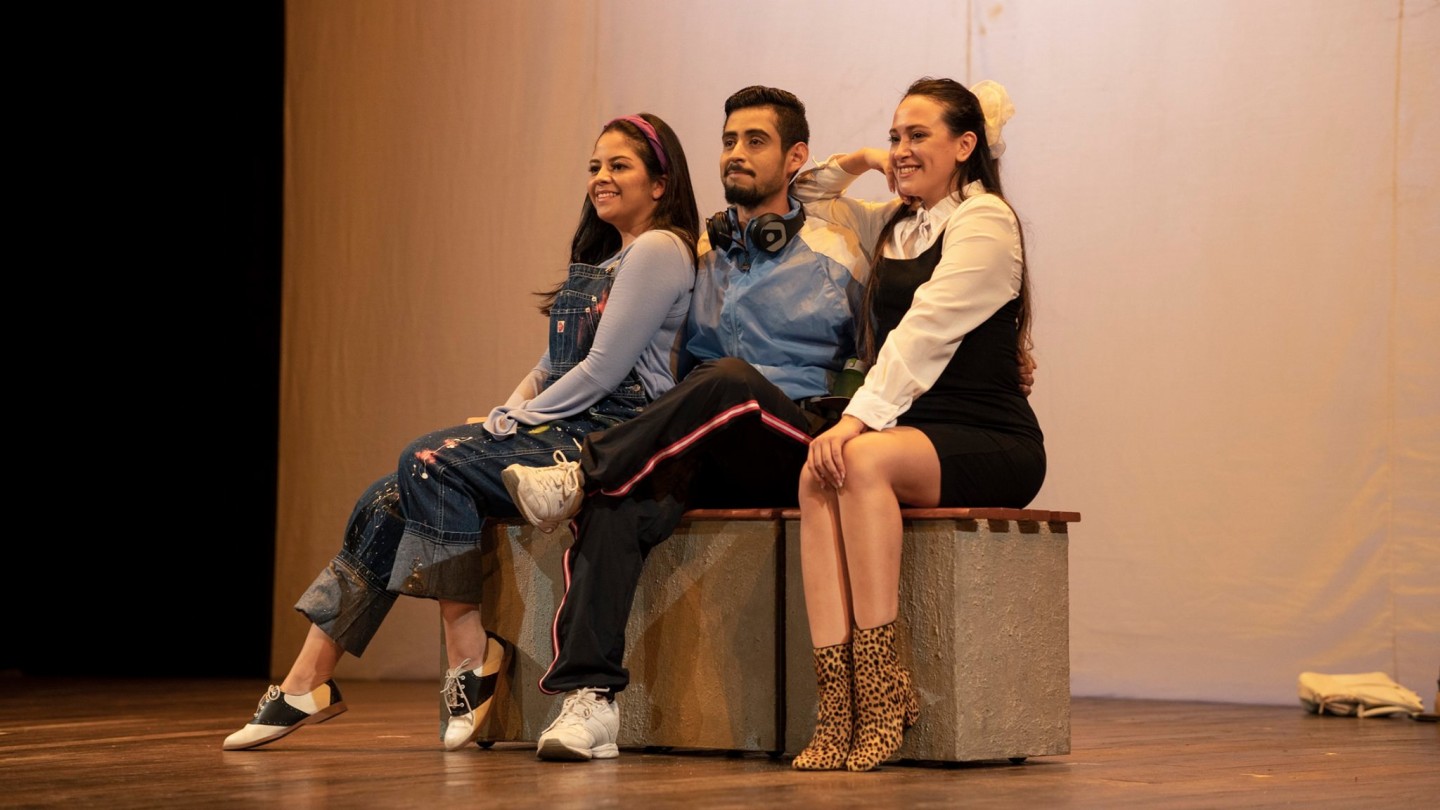Triángulo Teatro is a programme of theatrical performances which revolve around the contemporary interpretation of European dramatic art.
In Honduras, El Salvador and Guatemala, possibilities to produce performing arts are limited, due to a lack of public funding, limited consumption of cultural products and exhibition spaces, etc., making it difficult for the sector to professionalize and to establish itself as a stable economic sector. Triángulo Teatro aims to respond to these needs with a programme of cross-border creation and mobility of cultural products throughout the region, based on the contemporary interpretation of European dramatic art.
Through a public call to theatre companies in El Salvador, Guatemala and Honduras, the partners are collaborating on plays which vary in style and format. The productions are being staged in all three countries to promote cross-border cooperation. Triángulo Teatro also includes a professional development programme for the theatre sector, encompassing a technical training support programme. The project also offers information about European dramaturgy: links of interest and plays, both in the original language and translated into Spanish.
The crisis situation has hampered the production of plays and subsequently, the theatre tours itself. In order to give visibility to the project and the work of the five selected theatre companies, the project started programming a series of digital activities to be carried out together with the companies. These activities focused on how the companies are handling this situation, the challenges they face preparing the plays from a distance and their plans and strategies to return to the scenarios.
The theatre tour itself is turned into single physical performances on locations in El Salvador, Guatemala or Honduras, and will be shared in a dedicated theatre themed virtual platform afterwards, to be launched in April.
Theatre performances and virtual tour
Centre piece of the project is the virtual theatre tour on reworked contemporary creations of European dramaturgy, with theater companies from El Salvador, Honduras and Guatemala.
- Play selection: An Open Call to directors, producers, groups and theater companies from El Salvador, Honduras and Guatemala has resulted in five theatre plays to be produced and circulated in the three participating countries.
- Play production: The production of the theatre plays include studies on the acts of the plays, scenic staging of acts, scene transitions and rehearsals. All productions will be assisted and accompanied by the project partners.
- Complementary activities: Technical training addressed to the theatre sector in all three countries, including workshops for cultural managers and the performing arts sectors in all three countries through an open call.
Due to the impossibility of organizing the foreseen regional tour, the mise-en-scene of the five plays resulted from the work of Central American and European playwrights have been recorded and a curated version of each of them will be published digitally on a dedicated platform. The platform will be online at the end of April 2021; its launch will be closely linked to the activities in the con-text of the Europe Day (9 May) in the three countries.
Conversations: "Dramaturgia contemporánea"
In order to give visibility to the project and the work of the five selected theatre companies during the ongoing pandemic situation, the project hs programmed a series of virtual activities to be carried out together with the companies and European dramaturgists.
These conversations focus on how the companies are handling this situation, challenges they face preparing the plays from a distance and their plans and strategies to return to the original scenarios: How to assemble the plays - work processes, texts, characters, production, etc.? How to improvise Improvise and contextualise them to the current situation?
Course: Las Mujeres contamos
After centuries of exclusion, women only entered the stage of dramaturgy in the last century, and it is still a challenge for their proposals to be taken into account and brought to the stage. The project therefore hosted a practical course that aims to recognize the voice of theatrical creators of the region from the theatrical text as the basis of the artistic discourse of our communities; as well as to investigate the vision of the contemporary world that we as creators have. 17 female theatre creators participated in the course.
Internationalisation Workshop: "Horizontes"
To support theatre professionals in the region with practical tools, the Horizontes workshop helps 14 theatre professionals to gain experience and skills for the internationalisation of their theatrical projects in the future. This workshop was designed exclusively for groups of performing arts, managers and producers from the three countries involved with a specific aim to internationalise their work.
Triángulo Teatro as European Space of Culture
The selection committee acknowledged a clear and focused project that offers a strong idea of cross-border cultural co-creation. The “Triangulo Teatro” project leverages bottom-up exchange of artistic networks in the three countries into a cultural circuit towards sustainable collaboration synthesis. The selection committee saw how the project may push the theatre productions’ quality and build joint repertoire and capacities of the theatre communities in the three countries through an integrated yet decentralized co-creation model.
The project addresses the needs and problems of contemporary theatre production in many places worldwide with a regional collaboration scale model. This approach is a potentially replicable model for many other contexts worldwide. Furthermore, the project was also considered strong for its inherent joint capacity building through cultural exchange, co-production, co-showcasing and co-organizing.
Model of collaboration
The collaboration centres around strong idea of cross-border cultural co-creation. The Triángulo Teatro project leverages bottom-up exchange of artistic networks in the three countries into a cultural tour towards sustainable collaboration synthesis. EUNIC members spread the open call for participants among their net-works in the three countries, involved dramaturgists from their home countries for co-creation of the plays and are hosting the performances, together with the EU Delegations. They also take care of shared com-munication of the project.



